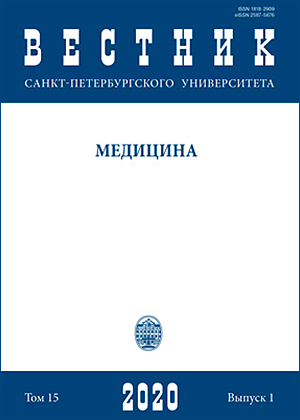Complicated decompression illness over-the-phone diagnosis, hyperbaric oxygen therapy delay at several days, favorable outcome (diving telemedicine clinical case study)
DOI:
https://doi.org/10.21638/spbu11.2020.104Аннотация
Telemedical support for diving operations, case study. Late diagnosis and HBO2 therapy delay at several days in DCI complicated with Inner Ear disorder. An unusual decompression sickness manifestation, previously the Inner Ear ICD has been believed to accompany severe forms of the disease, or follow deep dives. This time the Inner Ear ICD followed not deep dives and was not accompanied with general severe symptoms, it followed repetitive multiple dives to 20-30 m of water. The victim called the doctor only a few days after the onset of the disease, for a long time he refused an appropriate treatment. Treatment in the pressure chamber —Hyperbaric Oxygen Therapy (HBO2 Therapy) — started on the 4th day of the disease. However,
a very good result was obtained with favorable outcome. The case illustrates the modern features of medical care for occupational divers and for workers engaged in other activities under high pressure in Russia, it demonstrates implementation of HBO2 treatment for caisson disease (decompression sickness) in the specialized hospital monoplace HBO2 chamber with maximum pressure not exceeding 20 m of water (3 ATA). This is an example of successful “telephone treatment” — sometimes this option may be the only one possible in vast Russian territories.
Ключевые слова:
elemedicine, occupational diseases in divers, diving medicine, decompression illness (DCI), hyperbaric oxygen therapy (HBO2 Therapy)
Скачивания
Библиографические ссылки
References
Загрузки
Опубликован
Как цитировать
Выпуск
Раздел
Лицензия
Статьи журнала «Вестник Санкт-Петербургского университета. Медицина» находятся в открытом доступе и распространяются в соответствии с условиями Лицензионного Договора с Санкт-Петербургским государственным университетом, который бесплатно предоставляет авторам неограниченное распространение и самостоятельное архивирование.




